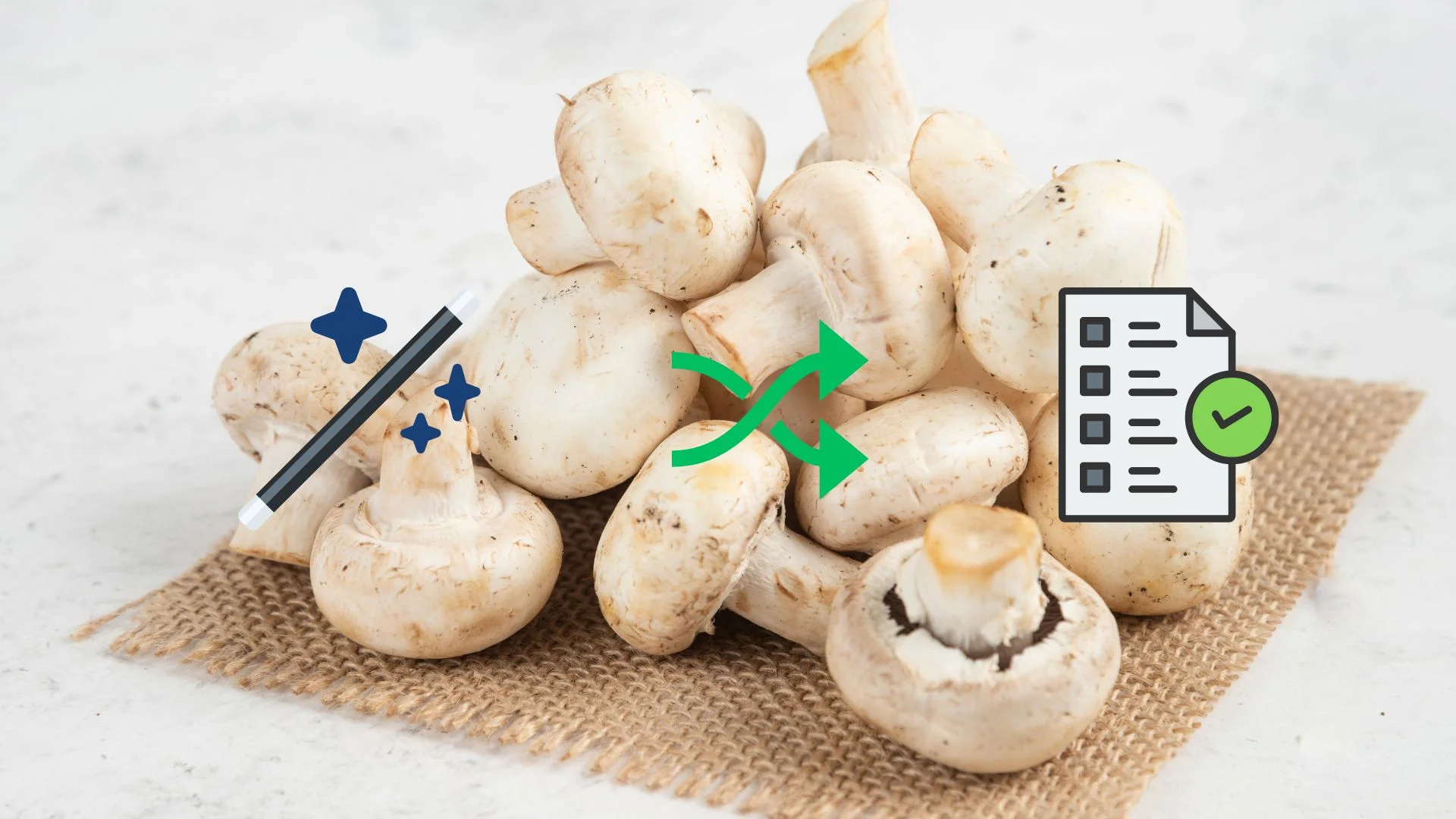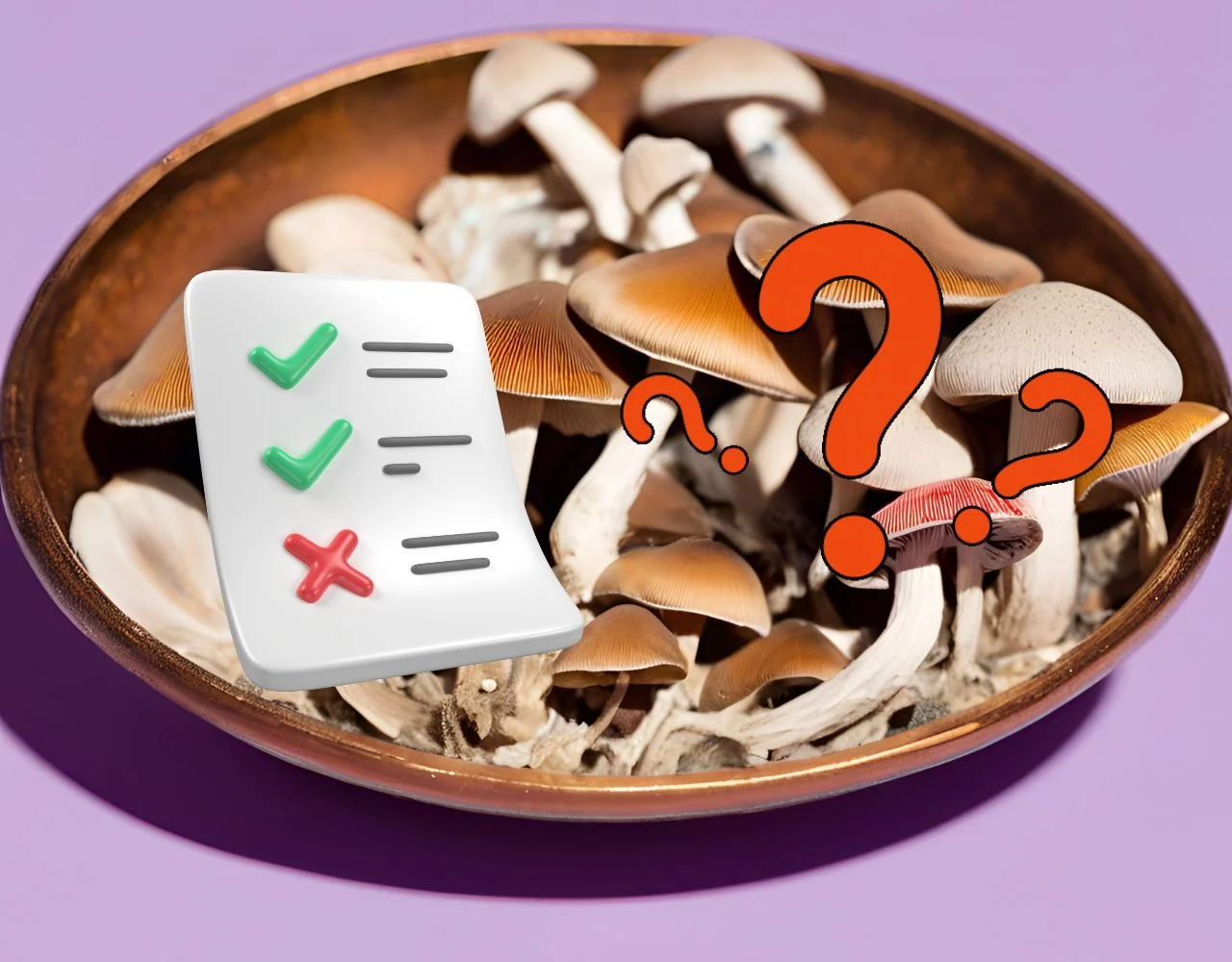
Do magic mushrooms show up on standard drug tests?
No — standard 5-, 8- or 10-panel urine drug screens do not typically test for psilocybin or its metabolite psilocin. Specialized hallucinogen tests are required to detect them.
How long do the effects of magic mushrooms last?
The hallucinogenic effects typically last 3-6 hours after ingestion, though this varies by dose, user metabolism and type of mushroom.
What is the detection window for psilocybin in urine?
In rare cases when specialized tests are used, psilocybin metabolites may be detected for up to about 24 hours in urine. However, standard tests usually won’t detect it.
Can UK or DOT regulated drug tests detect magic mushrooms?
Typically not — DOT/FMCSA-regulated panels screen for opioids, amphetamines, THC, cocaine and PCP; they do not include psilocybin unless a specific additional test is requested.
Can I rely on a detox drink or method to ‘flush out’ magic mushrooms?
No. Since routine tests don’t look for psilocybin and its metabolite is processed rapidly, ‘flushing’ methods are unlikely to matter much — the key is that the test panel might not include those compounds at all.
What happens if a specialized hallucinogen test is ordered?
Then the lab must specifically look for psilocin or psilocybin, using specialized methodology. The detection window is short and such tests are more expensive and uncommon in employment screening.
Does the use of magic mushrooms automatically cause a positive employment drug test?
Not automatically — unless the employer orders a specialized test for hallucinogens or the panel includes psilocybin. For most standard employment tests, mushrooms won’t appear.
Could use of mushrooms still pose a safety-sensitive job risk even if not detected?
Yes — even if not screened for, intoxication or impaired judgement (from mushrooms) can pose operational or regulatory safety risks. Employers and regulatory bodies may still act based on impairment.
What should a driver or employee do to manage risk if mushrooms were used?
Avoid safety-sensitive tasks while under influence, disclose if required by policy, and ensure that any drug testing program or consortium is clearly understood including which substances are tested.

Magic mushrooms can also be referred to as golden tops, blue meanies, mushies, or shrooms, agaric, and amani are a type of fungi that contain the psychedelic substance psilocybin. Psilocin, which is produced when psilocybin is consumed, interacts with serotonin receptors in the brain to cause hallucinations, altered perceptions, and mood swings.
Psilocybin is a relatively stable, white crystalline substance that is soluble in water and can be recrystallized from boiling water. Psilocybin is transformed into psilocin when consumed, which is the main ingredient that interacts with the brain's serotonin receptors to change mood and perception changes, and hallucinations. Besides psilocin, magic mushrooms may also contain other related compounds such as norpsilocin, baeocystin, norbaeocystin, and aeruginascin, which can modify overall effects.
Shrooms can be found in various regions around the world. They typically grow in environments with rich, organic matter, such as forests. Many species of magic mushrooms thrive in forested areas, particularly in damp, shaded spots. Some species prefer grassy areas, often found in fields and meadows.
Certain types grow on decaying wood or in areas with a lot of organic debris. Tropical and subtropical regions, with their warm and humid climates, are ideal for many species of magic mushrooms.
Some of the most well-known species are Psilocybe cubensis, Psilocybe semilanceata (Liberty Caps), and Psilocybe cyanescens.
Due to the psychedelic properties of magic mushrooms, a very common question arises: do shrooms show up in a drug test?
Psychedelic mushrooms, which contain the psychoactive compound psilocybin, are not typically detected in standard drug tests. Most common drug tests, such as urine, blood, and saliva tests, do not screen for psilocybin or psilocin.
A standard drug screening for pre-employment or those required by FMCSA for safety-sensitive jobs does not include Psilocybin in the drug testing panel. However, there are specialized tests designed to detect hallucinogens, including psilocybin, but these are not widely used.

Also Read: Can Synthetic Urine be detected in a Drug Test?
If a person has consumed magic mushrooms within the past 24 hours, there is a higher chance of detection, especially in urine tests. Hair follicle tests can detect psilocybin use for up to 90 days.
The most common type used for drug detection is urine drug screening. Urine drug tests look for a panel of five drugs known as DOT 5 panel drug test, which includes:
The legal status of magic mushrooms varies by country and region. In many places, they are illegal to possess, sell, or use. However, some areas have decriminalised or legalized their use for medical or recreational purposes.
Under US federal law, the active ingredient in magic mushrooms, psilocybin, is categorized as a Schedule I restricted substance, making it illegal.
Bit still, some states and cities have decriminalized or legalized psilocybin for therapeutic use. For instance, Oregon legalized psilocybin for therapeutic use in 2020, Colorado followed suit in 2022, and cities like Denver, Oakland, and Santa Cruz have decriminalized it. In Canada, psilocybin remains illegal, but there are exemptions for therapeutic use under specific circumstances.
In Europe, psilocybin mushrooms are illegal in the Netherlands, but psilocybin-containing truffles are legal and sold in smart shops, while Portugal has decriminalized the possession of all drugs, including psilocybin, for personal use.
In Australia, as of July 2023, psilocybin can be prescribed by authorized psychiatrists for treatment-resistant depression.
Research indicates a growing therapeutic potential for psilocybin in treating conditions like depression, anxiety, and PTSD. This promising outlook offers hope for those struggling with these mental health issues. Law enforcement seizures of psilocybin mushrooms in the U.S. have increased significantly from 2017 to 2022, reflecting a rise in their availability and use.
Must Read: Legalization of Marijuana
The effects of magic mushrooms might differ greatly according to the surroundings, the person's mental state, and the dosage. Here are some of the most common ones:
In conclusion, magic mushrooms contain psilocybin, which converts to psilocin in the body, causing hallucinations and mood changes. They grow in various environments worldwide, especially in forests and grassy areas.
Standard drug tests usually don’t detect psilocybin, but specialized tests can. The legal status varies globally, with some regions allowing therapeutic use. Research is ongoing into psilocybin’s potential to treat mental health conditions.
References
https://dojahemp.com/delta-8-the-ultimate-guide-on-buying-and-using-safely-2022/.
Discover the Hidden Benefits of Magic Mushrooms - Mushly.
Psilocybin and magic mushrooms: Effects and risks (medicalnewstoday.com)